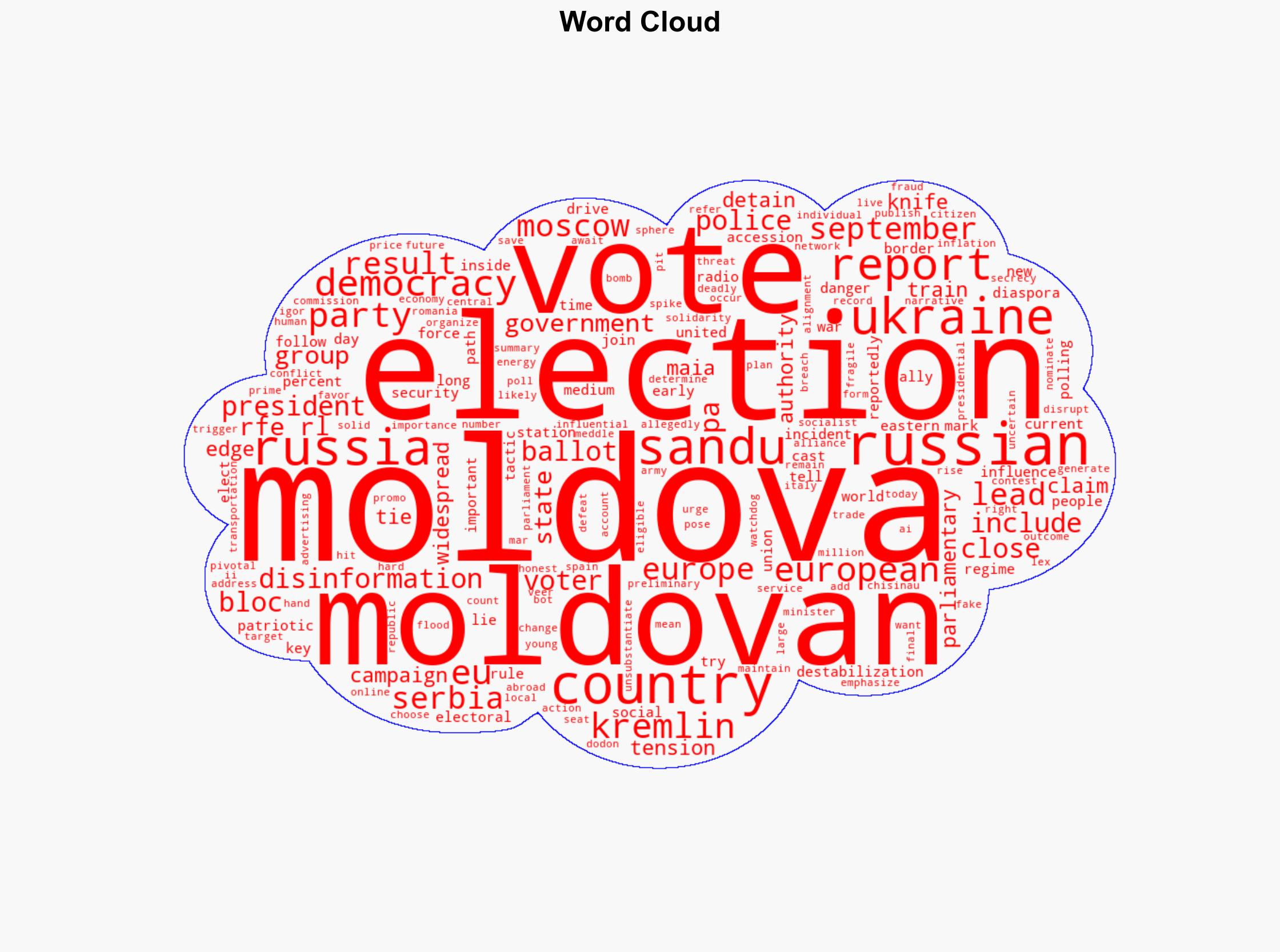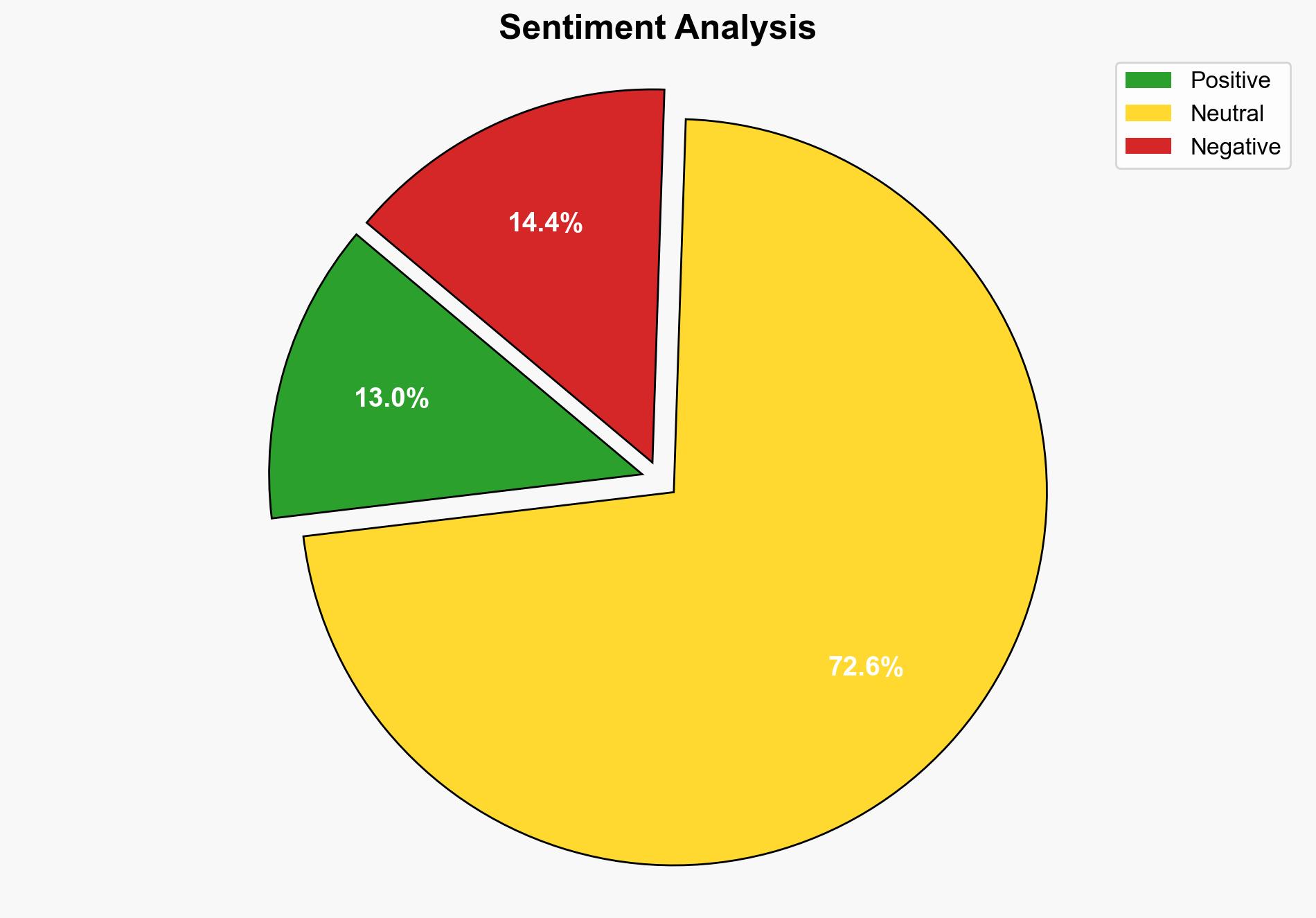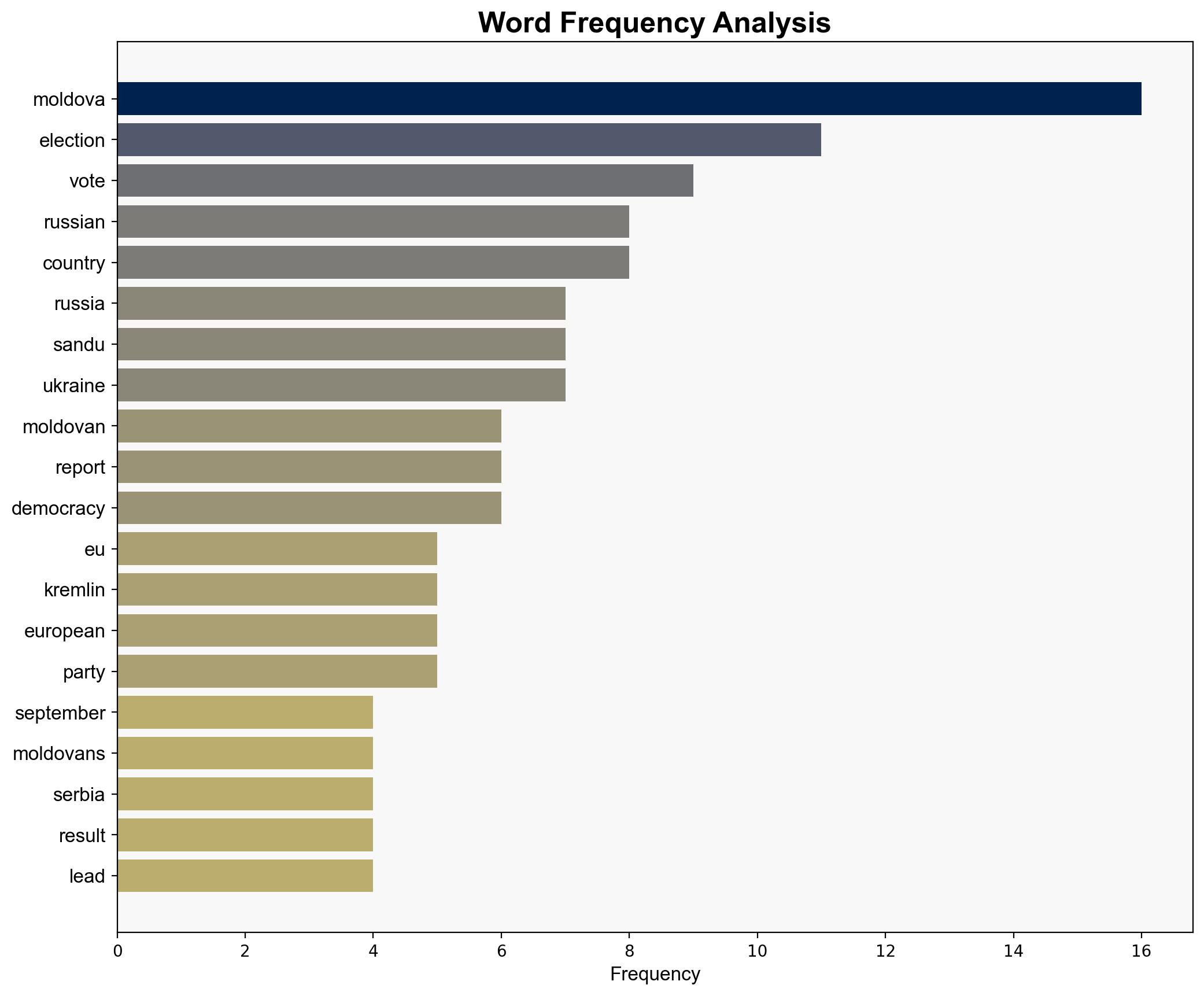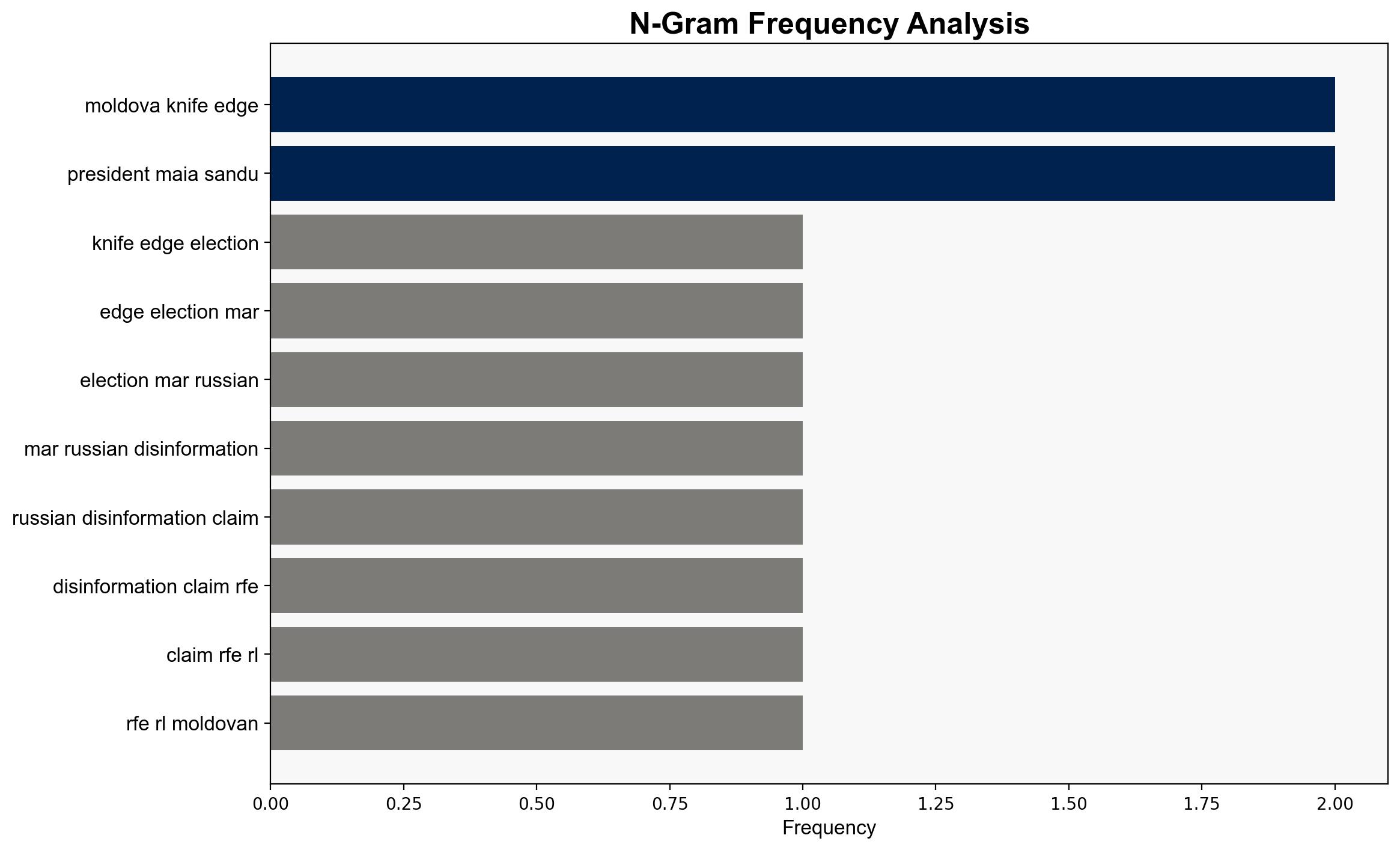Moldova On Knife Edge In Election Marred By Russian Disinformation Claims – Globalsecurity.org
Published on: 2025-09-29
Intelligence Report: Moldova On Knife Edge In Election Marred By Russian Disinformation Claims – Globalsecurity.org
1. BLUF (Bottom Line Up Front)
The most supported hypothesis is that Russian-backed disinformation efforts are actively attempting to influence Moldova’s parliamentary elections to sway the country towards Russia’s sphere of influence. This conclusion is based on structured analysis of reported disinformation campaigns, historical context, and recent detentions related to destabilization tactics. Confidence level: Moderate. Recommended action includes bolstering Moldova’s cybersecurity defenses and enhancing public awareness campaigns to counter disinformation.
2. Competing Hypotheses
1. **Hypothesis A**: Russian-backed entities are conducting a disinformation campaign to influence Moldova’s elections, aiming to shift the country’s alignment towards Russia.
2. **Hypothesis B**: The reports of Russian disinformation are exaggerated or misinterpreted, possibly as a political strategy by pro-European entities to consolidate support and delegitimize opposition.
Using Analysis of Competing Hypotheses (ACH), Hypothesis A is better supported due to multiple reports of disinformation, historical patterns of Russian influence in Moldova, and recent detentions linked to destabilization efforts. Hypothesis B lacks substantial evidence and relies heavily on speculative interpretations of political maneuvers.
3. Key Assumptions and Red Flags
– **Assumptions**: It is assumed that the reports of disinformation and destabilization are credible and accurately reflect Russian intentions. Another assumption is that Moldova’s pro-European stance is genuinely threatened by these activities.
– **Red Flags**: The possibility of local political entities exaggerating threats for electoral gain. Lack of direct evidence linking detained individuals to Russian state actors.
– **Blind Spots**: Potential underestimation of internal political dynamics and over-reliance on external threat narratives.
4. Implications and Strategic Risks
– **Geopolitical**: A shift in Moldova’s alignment could alter regional power dynamics, affecting EU and NATO strategies in Eastern Europe.
– **Economic**: Continued instability may deter foreign investment and exacerbate economic challenges, including inflation and energy dependency.
– **Cybersecurity**: Increased cyber threats targeting electoral processes and public perception.
– **Psychological**: Public trust in democratic institutions may erode, leading to civil unrest and polarization.
5. Recommendations and Outlook
- Enhance cybersecurity measures to protect electoral infrastructure and counter disinformation campaigns.
- Conduct public awareness initiatives to educate citizens on identifying and resisting disinformation.
- Engage in diplomatic efforts to strengthen regional alliances and deter external interference.
- Scenario Projections:
- Best Case: Successful countermeasures lead to a fair election, reinforcing Moldova’s democratic institutions.
- Worst Case: Disinformation succeeds, resulting in a pro-Russian government and increased regional instability.
- Most Likely: Mixed outcomes with continued political tension but no decisive shift in alignment.
6. Key Individuals and Entities
– Maia Sandu
– Igor Dodon
– Alexei Tulbure
7. Thematic Tags
national security threats, cybersecurity, counter-terrorism, regional focus





